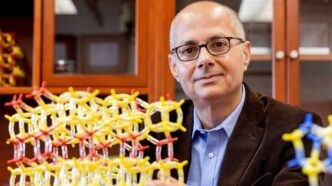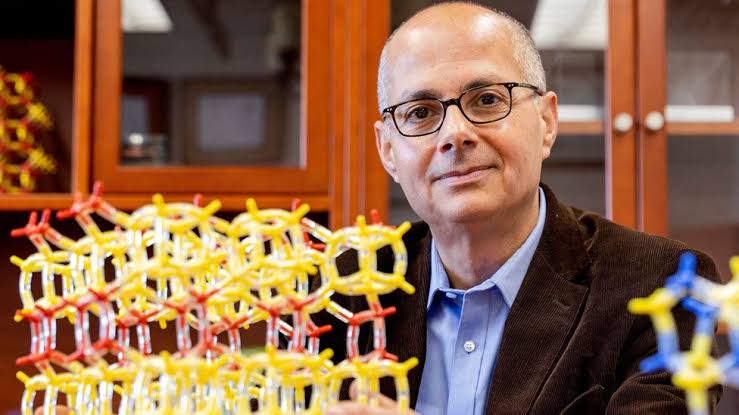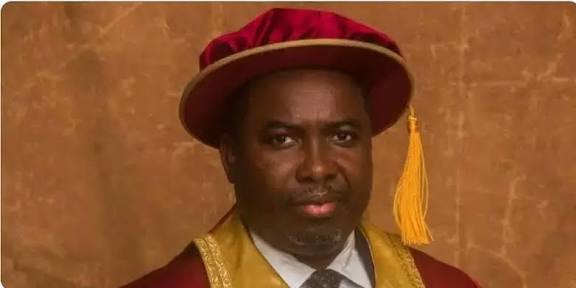The 2025 Nobel Prize in Chemistry has been awarded to Susumu Kitagawa, Richard Robson, and Omar M. Yaghi for their pioneering work on metal-organic frameworks (MOFs) — materials that could play a crucial role in combating climate change and reducing pollution.
Gatekeepers News reports that the three scientists were recognised for developing a new class of compounds that can capture, store, and filter chemicals and gases, including carbon dioxide and so-called “forever chemicals.” Their discovery, the Nobel committee said, represents a breakthrough in “molecular architecture.”
Upon receiving the news, Professor Kitagawa, of Kyoto University, said during a phone call to the Nobel press conference:
“I’m deeply honoured and delighted, thank you very much.”
Then, in a lighter moment, he asked, “How long do I have to stay here? Because I have to go out for a meeting.”
Professor Robson, based at the University of Melbourne, and Professor Yaghi, of the University of California, join Kitagawa in sharing the 11 million Swedish kronor (£872,000) prize.
The scientists’ work focused on building porous molecular structures — frameworks with vast empty spaces between molecules that allow gases and liquids to pass through. These tiny “rooms” could be used to trap carbon dioxide from power plants, remove harmful industrial chemicals, or even neutralise gases used in nuclear weapons.
Although MOFs have so far been produced only on a small scale, industries are exploring their potential for carbon capture and environmental cleanup. Professor Robson, who has worked in Australia since 1966, told BBC Newshour that the award “wasn’t a big surprise [because of] all sorts of sounds I’ve been hearing over the years.”
He added a note of realism about future applications:
“There’s talk about binding CO2 and solving the world’s atmospheric problems, which don’t sound realistic to me — but these sorts of compounds could do that sort of job on a small scale.”
Now 88, Robson admitted with a laugh that “the prize money is the main thing actually in my head. It wasn’t the driving force for all of this but at this stage in my life that’s a very nice thought to have.”
Professor Yaghi, who was born in Amman, Jordan, and grew up in modest conditions without electricity or running water, became fascinated by molecular structures at school and moved to the United States at age 15 to pursue his studies. His journey, the Nobel committee noted, embodies the transformative power of curiosity and perseverance.
Professor Kitagawa’s scientific philosophy, described by the committee as “the usefulness of useless”, was inspired by the Chinese philosopher Zhuangzi, who taught that even things that seem without value can prove vital in time.
Dr Annette Doherty, president of the Royal Society of Chemistry, said the prize underscored chemistry’s central role in solving global challenges:
“Every year we see Nobel Prizes given to chemists who welcome the challenge of finding solutions to the biggest problems our global society faces – better healthcare, environmental protection, clean energy, and secure food and water for everyone.”
The Nobel announcement was made on Wednesday by the Royal Swedish Academy of Sciences in Stockholm. It follows awards earlier in the week for Physics, given to researchers who advanced quantum computing, and Medicine, awarded for breakthroughs in immune system research.













